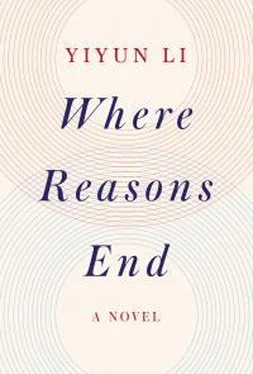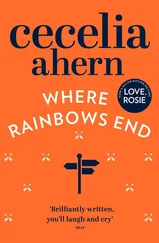Do you need a monument to remember me? I would rather you were reminded of me by a piece of cheesecake.
Because you’re a baker, not an architect?
Because cheesecake is perishable, he said.
Oh, I said. I’ve never used perishable in my writing.
Better than that word you never tire of using, inevitable.
They are different adjectives.
I prefer a world made of the perishable, he said. Not the inevitable.
Inevitable makes time more bearable, I thought.
Time doesn’t make sense if not for the perishable, he said.
Okay, I said. We can have different opinions.
As long as you promise not to use monumental again, he said. You really need to sharpen your skills with adjectives.
I had a dream last night, I said, changing the subject. In my dream I was going to pick up Daddy and J. from a hotel, which was like the hotel we stayed at in London.
Were you driving?
I parked the car nearby.
You can’t drive in England, he said. You don’t know how to drive on the left side.
Oh it was a dream, I said. At the hotel entrance all of a sudden you were walking next to me.
In my dream Nikolai was wearing his favorite blue-striped T-shirt. Mommy, I’m hungry, he said to me. The moment I heard him I woke up. Before reality and unreality were separated like night and day, darkness and lightness, I lived over and again with his smile and his voice in my head.
I wish I could tell you I had had the same dream, Nikolai said. Then it would feel like it truly happened, no?
I thought about several people who had told me their dreams about the departed. Often the dreams were interpreted as signs of communication from the other world. Yet dreams are but prologue to days, epilogue to other days, written by our faltering minds.
It would be a terror, I said. People with their independent lives should not meet as independent entities in dreams, too.
Even when one of them is no longer alive?
That changes nothing about an independent life already lived, I said.
But then it’s unfair, Nikolai said. How do you know if someone wants to be in your dream?
Like how do I know you would rather be playing hide-and-seek with me at night than telling me you were hungry? I said. Alas, I don’t know. No one has a choice when others decide to capture him or her in their dreams.
So fundamentally dreaming is injustice inflicted upon whomever is being dreamed of?
Sometimes self-inflicted injustice, I said. People you want nothing to do with still come into your dreams.
Just like baking then, he said.
I thought baking was the opposite of dreaming, I said. You have a precise recipe, with everything in control, and you get the right product in the end.
Did you get everything in good control when you made the cheesecake?
No, but that was because I’m not an Able Baker Charlie as you are, I said.
Bad pun, he said.
What?
ABC, he said. American Born Chinese. You should know my friends and I never use the term.
Oh, I said. It’s never occurred to me. I only thought of Able Baker Charlie from Richard Scarry.
When Nikolai was little, I was fascinated by a Richard Scarry book, What Do People Do All Day? Once, while having an official coffee with a dean at a university where I used to teach, and not being able to decipher her words, which were seemingly pregnant with meanings, I blurted out without thinking: What do you do all day?
I’ve noticed that you like to ask people about what they do for a living, Nikolai said.
For a living, yes, but that’s a compromise, I said. What I really want to ask is: What do you do all day ?
How meddlesome, how intrusive, how impertinent.
If days are where we live, I thought, I will always want to know how people live in their days.
Why? he said.
Don’t you sometimes have the feeling that others have answers to questions you don’t have answers to?
But others may look at you and think the same, he said. What if I ask you, What do you do all day?
Oh the things you know, I said. Reading. Writing. Cooking. Looking out of the window. What do you do all day?
Oh the things you don’t know, he said. Dreaming. Dreaming. Thinking. Dreaming.
What do you dream about? What do you think about?
Not telling.
Oh, I said, okay.
We were quiet. I thought about the dream from the night before. There were old recipes I no longer cooked because they had been his favorites. There were new dishes I had made since. It was hard enough when a child said he was suffering and a parent could do little to help. It was beyond helplessness when a parent could do nothing to mitigate a child’s hunger.
Be careful, he said. Don’t overinterpret anything. I’m not hungry. You only dreamed of it.
Do you still suffer? I said.
That’s a worse question than What do you do all day, Nikolai said. Imagine greeting someone. Hello, nice to meet you. Do you suffer?
You’re the one who says we shouldn’t ask inane questions, I said. Do you still suffer?
He was quiet for a moment. Depends how you use the word, he said.
I looked up the word suffer. It comes from sub, from below, and ferre, to bear.
So, if you ask me whether I still have to bear the weight of living, he said, no, I don’t suffer anymore.
What do you have to bear? I said.
Things that are always with me, with or without a physical body, he said.
I rearranged a vase of half-withered hydrangeas on the windowsill. Sometimes when I felt agitated I walked from room to room. Each room was full of objects, still lifes in his new home. Still life, still part of this life. For years he had asked me: If you write about suffering, if you understand suffering, why did you give me a life? I had never given him an answer good enough.
Now we’re both sad, he said. We’re good at making each other sad.
I thought I was better at making you angry, I said.
True, he said. We do argue a lot, don’t we?
All the arguments we had, looked at from this side of death, had been about a promise a mother could barely deliver, and a wish that the child suspected would not come true. Often I had told him, Life is difficult but things will work out in the end, as long as we have patience. Patience, patience, he had said. Do you really think everything will be better someday, when I’m older?
I’m not mad at you anymore, he said.
I know, I said.
All those storms—I had thought we had weathered them together. But perhaps there is no true togetherness when some pains remain incomprehensible.
Oh, I forgot, I said. I did learn one thing when I was baking the cake. I figured out how to make the parchment paper stand in place.
How? he asked.
A few times when Nikolai made cakes, he and I had struggled to make the parchment paper stay upright in a perfect circle while he poured the batter in.
If only I could show him, I thought. Not telling, I said.
Come on, he said. There are a million things worth not-telling, but not a little trick in baking.
There are a million things worth living for, I thought, including a little trick in baking.
You don’t even believe it yourself, he said.
What if we don’t have to believe anything, I said. Perhaps living only requires resolutions.
Like New Year’s resolutions? I thought their whole point is not to last?
No.
Like finding an answer, a solution? You’re bad at giving answers, but I’ve found mine already.
Like resolving time: a year into days, a day into hours, an hour into minutes, I said.
But has it occurred to you that time thus broken down makes quicksand? he said.
Yes, I’m fully aware of that, I said.
And you still resolve to live on quicksand?
Читать дальше












